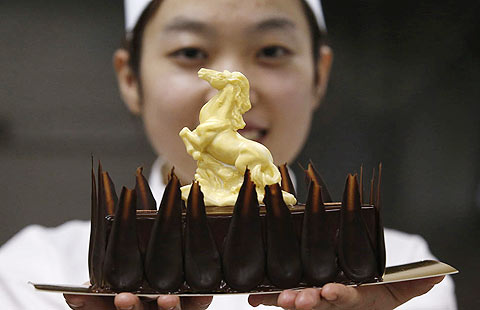A new way to teach engineering
Updated: 2014-02-03 13:01
By Luo Wangshu and Tan Yingzi in Chongqing (China Daily)
|
|||||||||
Inland university forges international ties to enhance China's research capabilities
International cooperation is essential to training students and enhancing China's scientific research capabilities, according to Liu Qing, vice-president of Chongqing University.
"There is a gap between Chinese universities and overseas schools that focus on enhancing students' innovative, creative and pragmatic abilities," said Liu, whose institution specializes in engineering and applied sciences.
Liu has been in charge of international cooperation at the university since 2011. One of his early initiatives was to invite young faculty members with overseas experience to join the international cooperation team.
He asked all the interviewees to describe what they saw as differences between Chinese universities and overseas institutions. Candidates with overseas doctoral degrees all gave Liu the same response: Chinese programs are short on teaching pragmatic skills and inspiring innovation.
"That's what we miss in our higher education," Liu said.
Chongqing University, founded in 1929, has a big name in the applied sciences. Dubbed China's cradle of engineering, it has more than 50,000 students, including nearly 20,000 master's and doctoral students and about 1,200 students from overseas.
"As an inland university in the western area, our university has fewer opportunities in international cooperation than our counterparts in eastern and coastal cities," Liu said. "We need more international influence if we are to improve research and teaching capabilities."
He has not been idle. In July, the university established a research center in conjunction with the Xerox Palo Alto Research Center - known as Xerox PARC - in the United States. The research and development company enjoys a distinguished reputation for contributions to information technology. It is located in Palo Alto, California, the center of Silicon Valley.
In the cooperative, PARC gives access to its research to its Chongqing partner, which in turn is responsible for matching the raw science to enterprises that can put the results into practice.
Some faculty members here have made connections to the market, and the PARC involvement will supply added value built on that foundation.
The center's current project, coordinated by Professor He Qiang, is related to water processing.
"PARC leads many innovations in the engineering world," Liu said. "This cooperative will bring innovative thinking to our college."
Nurturing students in pragmatic thinking is required for success, he said. Along that line, Chongqing University this year adopted a co-op model from the University of Cincinnati for its engineering curricula and created what is called the Joint Co-op Institute.
It thus became the first Chinese university to adopt the cooperative education model, a method of combining classroom education with work experience in higher education.
Liu encouraged every department to build a relationship with an overseas partner, such as the one he established with the University of Cincinnati.
"We can learn how they train students at the beginning and then adopt based on our needs. It is like a joint-venture company," Liu said.
The Chinese university also cooperated with the port authority in Antwerp, Belgium, to train master's students in logistics.
"Chongqing is a key transportation center in southwestern China, with an important port along the Yangtze River and the new Chongqing-Europe railway," Liu said. "It will need many professionals in logistics in the future."
The program's inaugural class - 35 students - began studying at the university in September. The qualified students will be sent to Antwerp to learn, Liu said.
Besides student nurturing and research collaboration, Liu also values attracting overseas talent to join Chongqing University.
"Based on the international academic evaluation system, the university adopts a tenure track model, operating a comprehensive, independent, strict and well-paid system to attract overseas talent," he said, adding that the school increased its proportion of hiring faculty with overseas experiences.
"To establish a team for innovation and academic leaders, the university invests more to overseas returnees, including providing sufficient academic funds, relocation fees and creating a solid platform. We welcome experts from all over the world," he said.

 In teen star transition, Bieber may want to emulate Miley
In teen star transition, Bieber may want to emulate Miley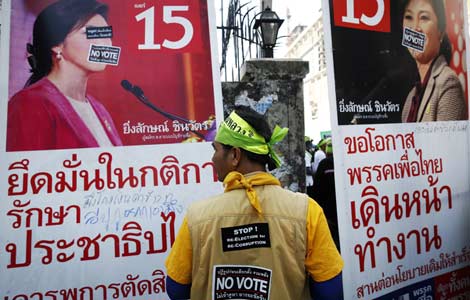
 Thai caretaker PM urges protesters not to block voting
Thai caretaker PM urges protesters not to block voting
 Holy waters in Nepal
Holy waters in Nepal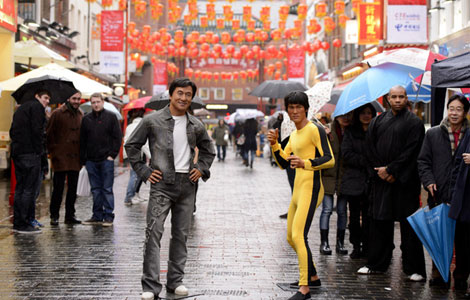
 Kongfu stars wax shine in London ChinaTown
Kongfu stars wax shine in London ChinaTown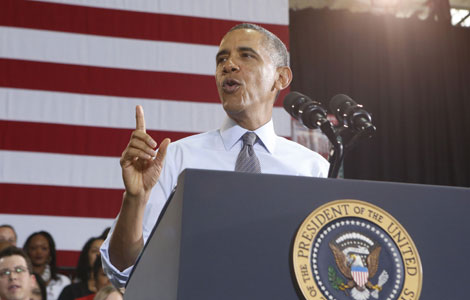
 Obama pushes minimum wage hike
Obama pushes minimum wage hike
 Getting ready for some football
Getting ready for some football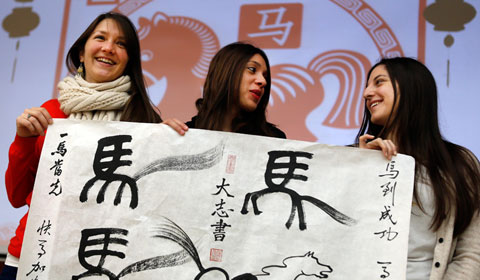
 The Year of Horse gallops in
The Year of Horse gallops in
 Musical celebration of Fab Four anniversary
Musical celebration of Fab Four anniversary
Most Viewed
Editor's Picks

|

|

|

|

|

|
Today's Top News
Li signs regulation on state secrecy law
Obama speech on NSA welcome
Tape of King speech found
Norovirus blamed for cruise sickness
Largest Chinese Internet IPO yet
US experts divided over China's local debts
Xi extends Lunar New Year greetings
Obama says he believes Sochi is safe
US Weekly

|

|



